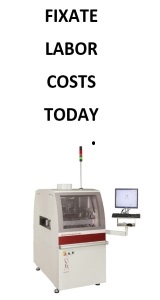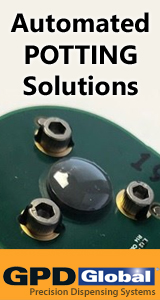Printed Circuit Board Assembly & PCB Design Forum
SMT electronics assembly manufacturing forum.
- SMTnet
- »
- Electronics Forum
- »
- PCB trouble shooting
PCB trouble shooting
Views: 3891
![]() We are small PCB assembly business and new. We built 100 boa...
- Aug 11, 2010
by
1036
We are small PCB assembly business and new. We built 100 boa...
- Aug 11, 2010
by
1036
![]()
![]()
![]() The basic rule is 'it depends:'
* You made a proposal to yo...
- Aug 11, 2010
by
davef
The basic rule is 'it depends:'
* You made a proposal to yo...
- Aug 11, 2010
by
davef
![]()
![]()
![]() Schematics help you troubleshoot further but if you do not h...
- Aug 12, 2010
by
dyoungquist
Schematics help you troubleshoot further but if you do not h...
- Aug 12, 2010
by
dyoungquist
![]()
![]()
![]() Thanks so much to all of you for the info and experience you...
- Aug 12, 2010
by
1036
Thanks so much to all of you for the info and experience you...
- Aug 12, 2010
by
1036
![]()
- SMTnet
- »
- Electronics Forum
- »
- PCB trouble shooting







